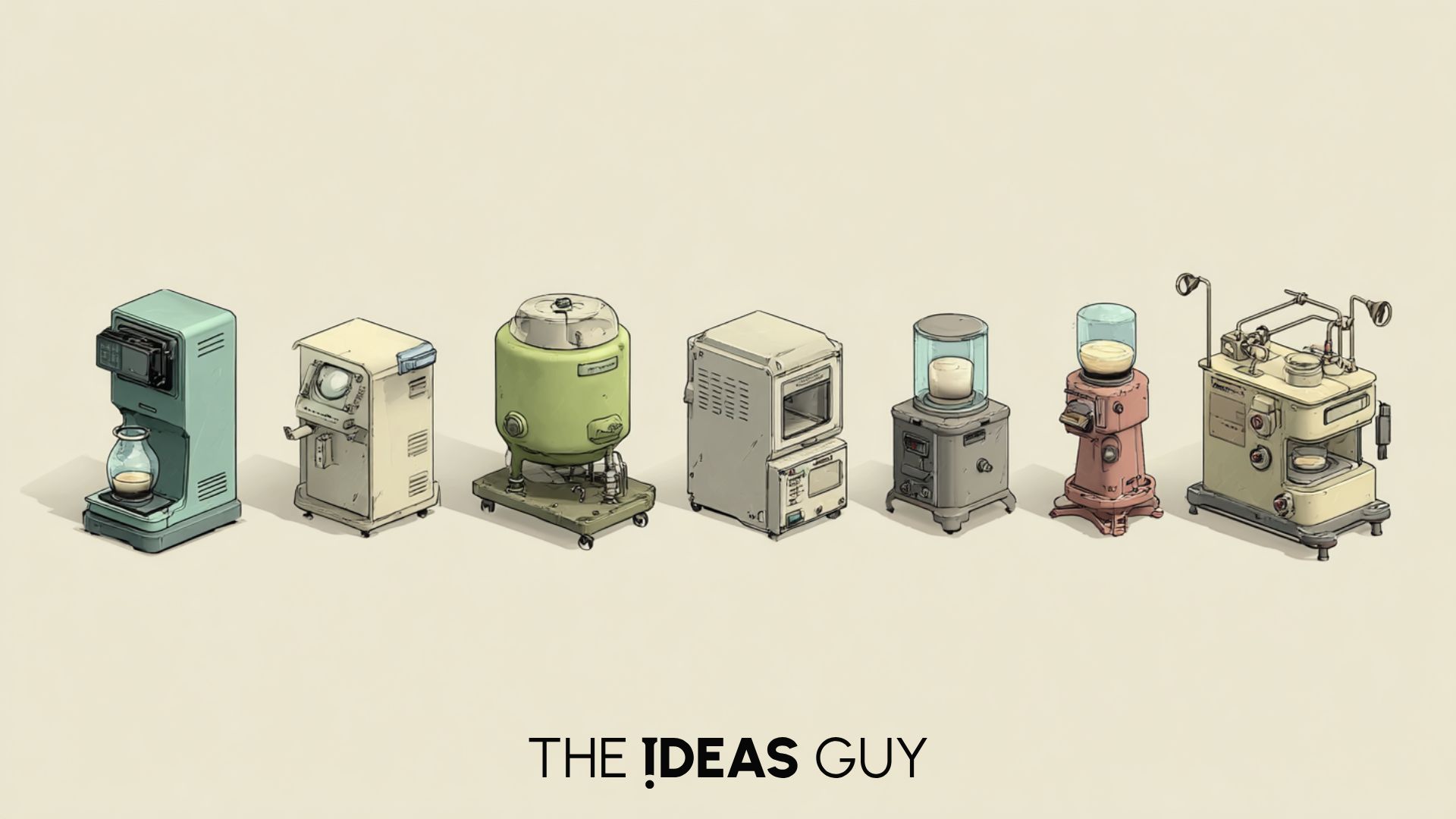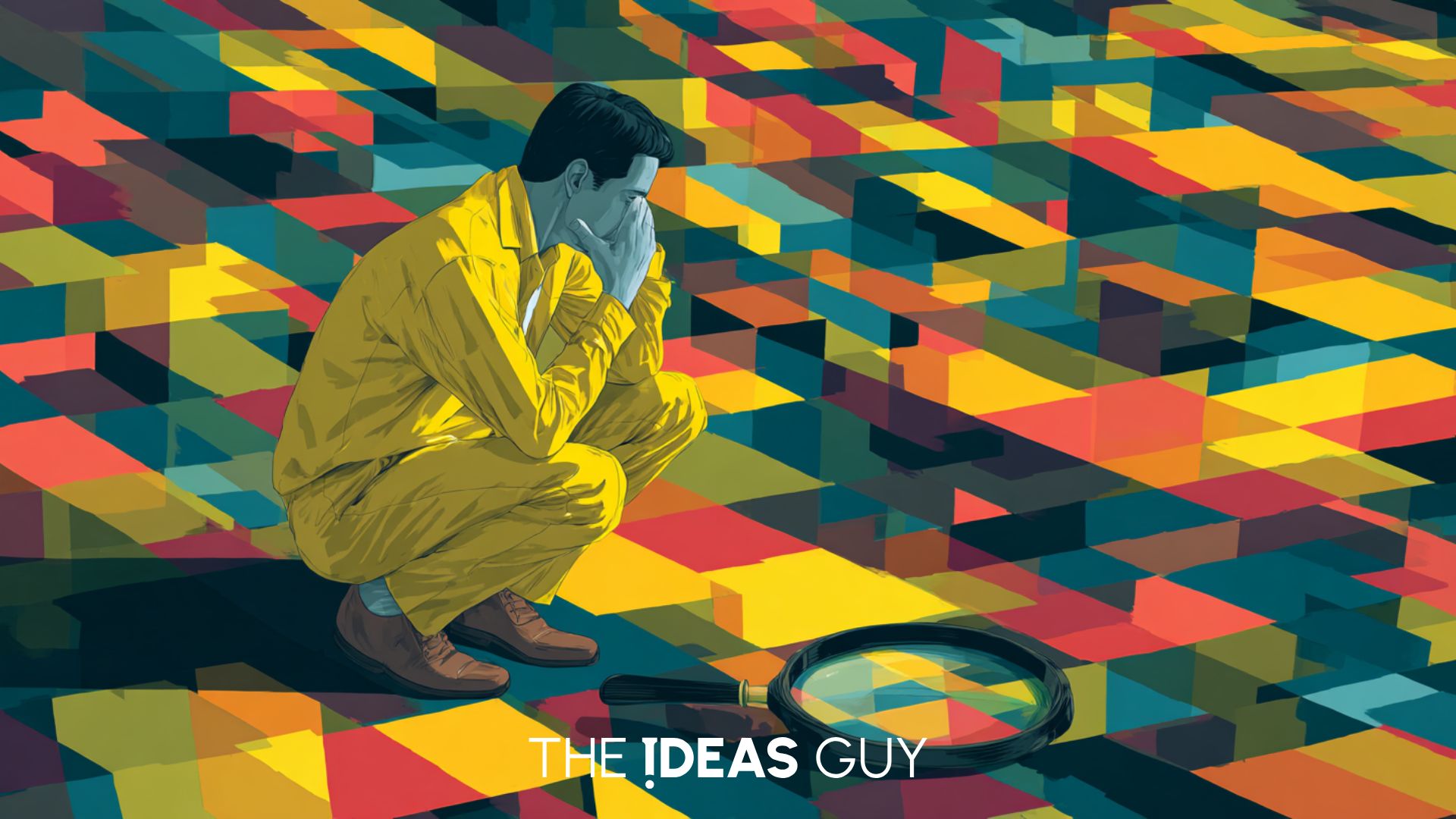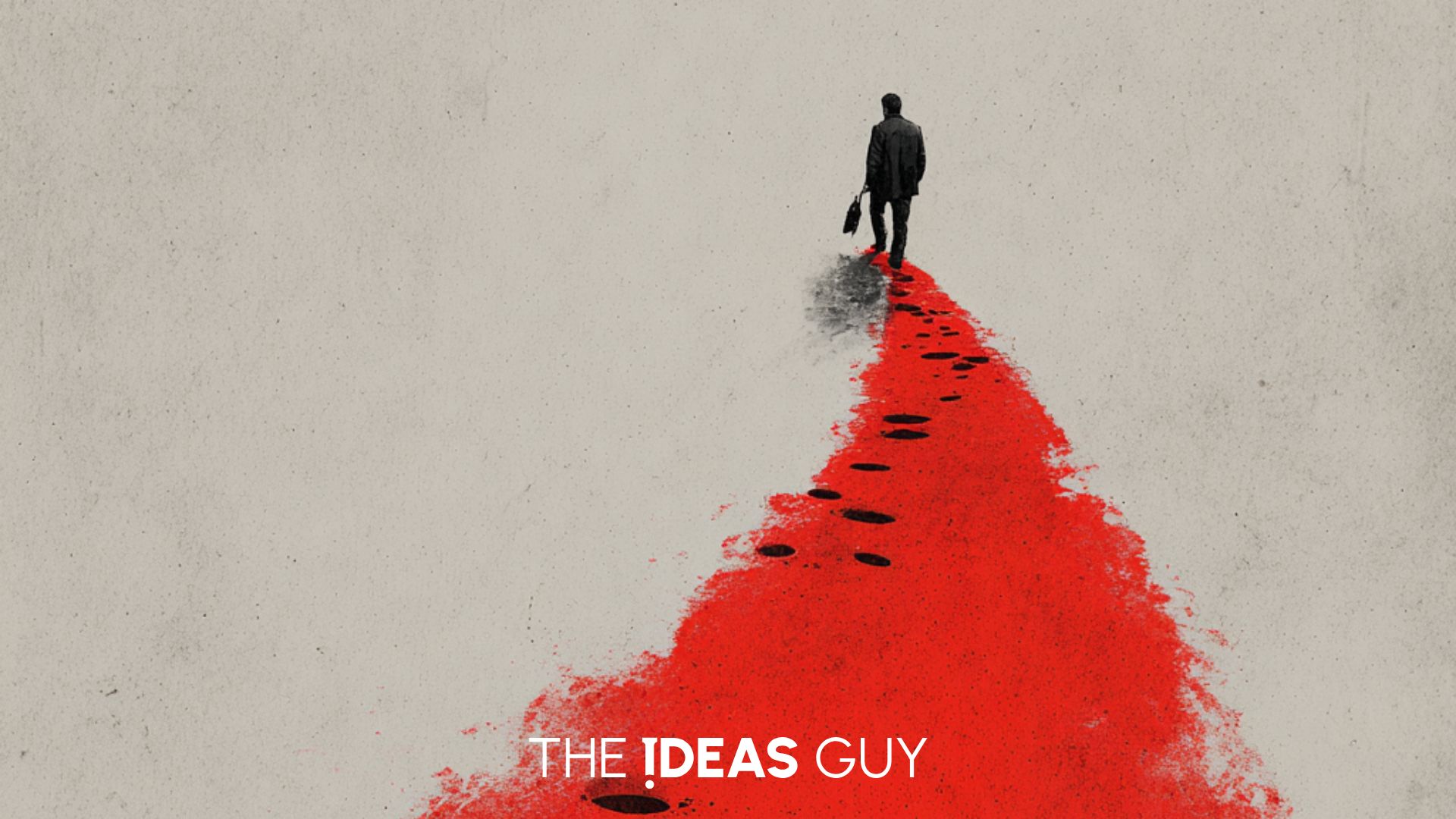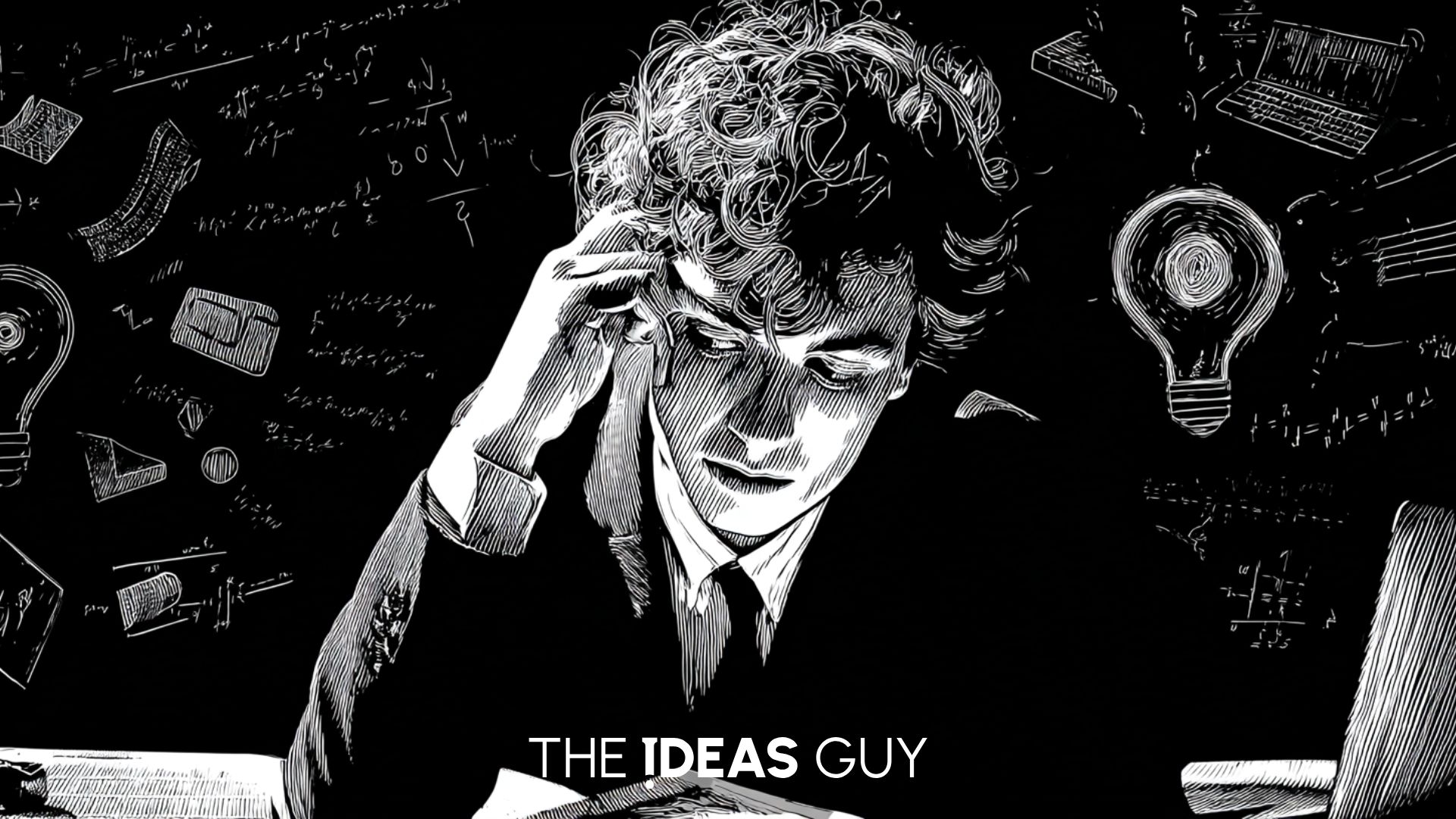The Beatles released “Love Me Do” in October 1962. It was terrible. Well, perhaps not terrible, but it was certainly unremarkable - a simple harmonica-driven ditty that barely scraped into the UK top 20. If you’d heard it then, you’d never have predicted that the same four lads would, within five years, produce “A Day in the Life” - arguably one of the most sophisticated pieces of popular music ever recorded.
What happened between those two songs wasn’t magic. It was iteration.
The Beatles tell a different story about innovation than the one our culture prefers. We’re addicted to tales of sudden breakthrough; the lightbulb moment, the flash of genius, the eureka in the bath. But real innovation looks more like a battered recipe card: unglamorous, gradual, built through patient accumulation of small discoveries.
The Beatles didn’t leap from “Love Me Do” to “Sgt. Pepper’s” overnight. They iterated constantly: in the studio, on tour, in conversation with each other. Each song built on lessons learned from the previous one. “Yesterday” taught them about string arrangements. “Norwegian Wood” introduced the sitar. “Tomorrow Never Knows” experimented with tape loops. By the time they recorded “A Day in the Life,” they had accumulated hundreds of small innovations in songwriting, arrangement, and production technique.
This patient refinement contradicts everything our culture tells us about innovation. We wait for the perfect idea, the complete solution, the moment when everything becomes clear. Meanwhile, the people actually innovating are already on attempt number fifty, learning something new with each failure.

The mythology of sudden breakthrough isn’t just inaccurate - it’s dangerous. It teaches us to undervalue incremental progress and overestimate the importance of individual genius. Worse, it creates paralysis. If innovation requires lightning strikes of inspiration, what’s the point of trying anything less than revolutionary?
The Compound Truth About Small Changes
B.F. Skinner discovered something remarkable about learning complex behaviours. You can’t teach a pigeon to play table tennis by waiting for it to spontaneously pick up a paddle. Instead, you shape behaviour through “successive approximation” – rewarding tiny steps toward the desired outcome.
First reward the pigeon for looking at the ball. Then for moving toward it. Then for touching it. Each iteration builds on the previous one, creating chains of improvement that eventually produce sophisticated behaviours.
“The way positive reinforcement is carried out is more important than the amount.” BF Skinner
Human innovation seems to follow identical patterns. We develop capabilities through incremental progress, not sudden transformation.
This psychological reality explains why breakthrough moments are usually breakthrough recognitions – sudden awareness of progress that’s been building gradually. When scientists have their “aha” experiences, they’re typically recognising patterns that emerged through systematic experimentation. The eureka isn’t the innovation; it’s the moment they notice innovation that’s already occurred.
Netflix exemplifies this reality. Their entertainment revolution didn’t emerge from a single brilliant insight. They began by mailing DVDs, hardly revolutionary. But they iterated relentlessly on recommendation algorithms, streaming technology, viewing pattern analysis, interface design. Each improvement seemed insignificant alone, but compound effects created an entertainment empire that traditional studios couldn’t match.

The maths of compound improvement are deceptively powerful. Improve something by 1% daily for a year and you end up 37 times better than when you started. Allow 1% daily deterioration and you approach zero over the same period. Innovation happens in this mathematical space where tiny improvements accumulate into extraordinary outcomes.
Warren Buffett understood this principle when he wrote,
“Someone’s sitting in the shade today because someone planted a tree a long time ago.” Warren Buffett
Innovation works like this – small improvements planted consistently create revolutionary results over time.
Failure as Essential Fuel
Thomas Edison’s approach to invention famously reveals crucial truths about iteration. When journalists asked about his failures developing the light bulb, Edison is rumoured to have replied,
“I have not failed. I’ve just found 10,000 ways that won’t work.” Thomas Edison
This wasn’t optimistic spin - it represented sophisticated understanding of how innovation actually functions. Each “failed” attempt provided data that informed the next iteration. Failure wasn’t the opposite of progress; it was progress in disguise.
Modern software development has institutionalised this insight. Companies like Spotify don’t wait until their algorithms are perfect before launching features. They release rough versions, observe actual user behaviour, and refine based on evidence rather than assumptions. The entire tech industry operates on the principle that real-world testing beats theoretical perfection.
This requires fundamental shifts in how we think about failure. Instead of viewing unsuccessful attempts as evidence we’re on the wrong track, iteration treats them as essential information gathering. Each failed prototype answers important questions about what works, what doesn’t, and what to try next.
Restaurant kitchens operate this way naturally. Chefs don’t spend months perfecting recipes theoretically before tasting them. They cook, taste, adjust seasoning, cook again, adjust technique, taste again. Each iteration provides immediate feedback that informs the next attempt. Final dishes emerge through accumulated learning, not initial brilliance.

The contrast with other industries is striking. Pharmaceutical development often follows linear models; extensive theoretical research, limited testing, then massive investment in clinical trials. When drugs fail in late-stage testing, costs are enormous because there were few opportunities for early course correction.
Maya Angelou understood iteration’s power in writing. She rewrote sections of her books dozens of times, not from perfectionism but because she knew good writing emerges through refinement, not inspiration. “I write and rewrite and rewrite and write and rewrite,” is the anecdote we believe she left us. Each iteration revealed new possibilities that weren’t visible in previous versions.
Perfectionism as Innovation’s Murderer
Voltaire identified a psychological trap that kills more innovation than any external obstacle: “the perfect is the enemy of the good.” Perfectionism paralyses progress because it demands complete solutions before any action is taken.
This often shows itself as analysis paralysis – overthinking decisions until no decision gets made. In innovation contexts, this translates to endless planning, research, and refinement of ideas that never get tested in the real world. (By the way, in education research, this seems to be the norm, sadly.)
Google’s approach to email innovation illustrates the alternative. Rather than trying to design the perfect email service from the outset, they launched Gmail as a limited beta with basic features. User feedback revealed which capabilities mattered most, which were unnecessary, and which new functions were needed. And you can opt in to training the tool or not, meaning you can make an impact on how the tool develops! Gmail today emerged through thousands of small iterations based on real usage data, not theoretical perfection.
The perfectionist trap is particularly insidious because it disguises itself as high standards. In reality, perfectionism often prevents genuine quality because it eliminates the learning opportunities that come from testing imperfect solutions.

As I have often said, educational settings suffer enormously from perfectionism. Students spend weeks polishing assignments in isolation rather than seeking feedback on early drafts. Teachers design elaborate lesson plans without testing simpler versions first. Schools implement comprehensive new policies without piloting basic approaches. The pursuit of perfection prevents the learning that leads to genuine excellence.
Reid Hoffman, LinkedIn’s founder, captured this insight perfectly:
“If you are not embarrassed by the first version of your product, you’ve launched too late.” Reid Hoffman
This doesn’t advocate for shoddy work but recognises that real-world testing provides superior feedback to theoretical perfection. The perfectionist mindset assumes we can think our way to optimal solutions. Iteration recognises that optimal solutions emerge from engagement with messy reality, not from abstract contemplation.
Building Iteration into Organisational DNA
The most innovative organisations don’t just practise iteration occasionally - they embed it into their fundamental operating principles. This requires more than encouraging experimentation; it demands creating systems that make iteration inevitable.
Amazon institutionalises iteration through “two-way door” decision-making. Jeff Bezos distinguished between irreversible decisions (one-way doors) requiring extensive analysis and reversible decisions (two-way doors) that can be made quickly and adjusted based on results. This framework encourages rapid experimentation with low-risk ideas rather than endless deliberation.

Pixar operates through “brain trust” meetings, regular sessions where directors receive honest feedback on works in progress. These aren’t approval meetings but iteration workshops where films are systematically improved through collective insight. Every Pixar film undergoes dozens of major revisions based on these collaborative sessions.
3M’s “15% time” policy allows employees to spend portions of their work hours on personal projects. This creates space for iterative experimentation without immediate pressure for results. Many of 3M’s most successful products emerged from this protected exploration time.
The key insight is that iteration must be systematic, not accidental. Random experimentation produces random results. Effective iteration involves clear hypotheses, measurable outcomes, and structured reflection on what each attempt reveals.
This systematic approach requires what we often talk about when it comes to authentic and genuine culture - psychological safety, the confidence that you can experiment, fail, and learn without negative consequences. Teams with high psychological safety iterate more frequently because members feel secure enough to propose and test imperfect ideas.
The Educational Iteration Crisis
British education faces particular challenges with iteration because assessment-heavy systems penalise imperfection. Students learn to hide their thinking processes and present only polished final answers. Teachers feel pressure to demonstrate mastery rather than model learning. Schools are judged on immediate results rather than improvement trajectories.
This creates iteration poverty - environments where learning through successive improvement becomes impossible because every attempt must appear successful from the outset. This perceived perfection is actually problematic in the end as it drives teachers to burnout or to hide their sources or thinking process.
The most effective teachers combat this by making their own thinking visible. They show students their planning processes, including false starts and revisions. They demonstrate how they approach unfamiliar problems, modelling the iterative thinking that leads to genuine understanding.
Some schools experiment with “draft culture” – encouraging students to submit multiple versions of assignments with the expectation that each iteration will be stronger than the last. This shifts focus from performing knowledge to developing knowledge through refinement.

Finnish education systems provide compelling models here. Finnish schools emphasise process over outcomes, allowing students and teachers to iterate without constant standardised assessment pressure. This creates space for the deep learning that emerges through repeated engagement with challenging ideas. I’m not saying the Finnish system is perfect, as recent studies have shown, but this is part of the stuff we like to see in schools.
But iteration in education extends beyond individual learning. The most innovative educational institutions treat their entire approach as ongoing experiments. They pilot new pedagogies, gather evidence about effectiveness, and refine methods based on discoveries rather than policy mandates.
This requires courage from educational leaders. It means admitting that current approaches might be imperfect and that better solutions will emerge through experimentation rather than bureaucratic directives.
Personal Iteration Architecture
Developing an iterative mindset requires practical strategies for incorporating continuous improvement into daily life. The most effective approach involves identifying small, specific areas for experimentation rather than attempting wholesale life changes.
We might iterate on morning routines, reading habits, exercise patterns, or conversation techniques. The crucial element is choosing domains where we can experiment safely and gather feedback quickly.

We should actively seek feedback rather than waiting for it to arrive naturally. Most people are reluctant to offer unsolicited criticism, but they’ll provide honest insights when asked directly. Regular feedback accelerates iteration cycles by highlighting blind spots in our current approaches.
Most importantly, we must resist the urge to abandon approaches after single attempts. Real iteration requires multiple cycles of testing, adjusting, and retesting. The magic happens in the accumulation of small improvements, not in the perfection of individual efforts.
This means starting with low-stakes experimentation, changes that won’t cause significant problems if they fail. This builds confidence in the iterative process before applying it to more consequential domains.
Key Takeaways
1. Reject breakthrough mythology. Innovation emerges through accumulated small improvements, not sudden inspiration moments. Focus on consistent iteration rather than waiting for perfect ideas.
2. Treat failure as essential information. Each unsuccessful attempt provides valuable data about what works and what doesn’t. Reframe setbacks as necessary components of the learning process. I’ve said this lots of times before, I know!
3. Embrace ‘good enough’ starting points. Perfect solutions that never get implemented help nobody. Begin with adequate approaches and improve them through real-world testing.
4. Design systematic experimentation. Create regular opportunities for testing new approaches in low-risk environments. Make iteration inevitable rather than accidental.
5. Track compound improvement. Monitor progress over longer time periods to observe cumulative effects of marginal gains. Small daily improvements create extraordinary long-term results.
6. Make thinking processes visible. Share your iteration journey with others. Model how to approach problems through successive refinement rather than immediate perfection.
Your own innovations may lack the drama of Hollywood breakthrough moments, but they’ll possess something more valuable: the reliability that comes from tested improvement. While others wait for lightning strikes of inspiration, you’ll be quietly building something remarkable through the steady accumulation of small discoveries.
When everyone is obsessed with dramatic transformation, the patient practice of iteration becomes almost subversive. It suggests that meaningful change doesn’t require genius or inspiration - just the willingness to begin imperfectly and improve persistently.
The Beatles didn’t plan to revolutionise popular music when they recorded “Love Me Do.” They simply kept making music, each song building on what they’d learned from the previous one. Seven years and hundreds of iterations later, they had transformed not just their own art but the entire cultural landscape.
Further Reading
Discover more interesting articles here.
.png)



